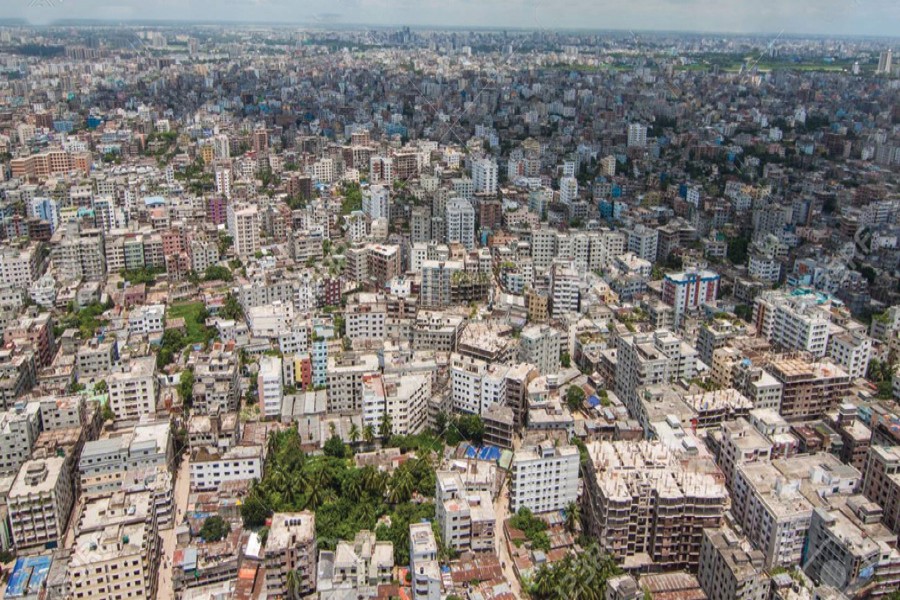Various global environmental reports offer figures of money or death apparently to paint a picture that can be visualised by most people. In the process, some other important issues are often overlooked.
'Failure of urban planning' in Bangladesh is one such issue, which, according to a World Economic Forum (WEF) report, is one of the top five risks for the economy. However, Dhaka's ranking as the third worst liveable city, by the Economic Intelligence Unit, was more obvious when the city almost collapsed after less than an hour's rainfall the other day.
The WEF's report 'Regional Risks for Doing Business 2019' has identified 'energy price shock', 'failure of national governance', 'unemployment or underemployment', and 'failure of financial mechanism or institution' as other major risks for Bangladesh. Quoting the World Bank findings, the report says Bangladesh loses approximately $6.5 billion due to pollution and environmental degradation. The loss is $1.44 billion in Dhaka alone. Suffering of people in urban areas has been attributed to 'low levels of urban services'.
Air pollution claimed 123,000 lives in the country in 2017, said an earlier report styled 'State of Global Air-2019'. The latest WEF report insists that if pollution levels were brought in line with World Health Organisation guidelines, life expectancy in Bangladesh would increase by 1.3 years. Wetland encroachment and unregulated disposal of hazardous waste harm women, children and the poor and the World Bank's country environmental analysis 2018 estimated that nearly one million people, mostly poor, are at risk of lead contamination.
One of the growing and most polluted cities in South Asia is Dhaka where the infrastructure is at risk of failing to keep up with its growth, observes the WEF report. Dhaka city's population will increase by more than 10 million inhabitants to almost 30 million by 2030.
'Manmade environmental catastrophes', is ranked the third risk in South Asia which, Greenpeace says, is home to three of the world's four most polluted countries - Bangladesh, India and Pakistan (Afghanistan is the fourth).
In the regional context, even the possibility of 'terrorist attacks' has been ranked below the 'water crises'. "Water also presents geopolitical challenges in the region," reads the WEF report. Referring to bilateral arrangements on the Indus between India and Pakistan and the Ganges water sharing issue between India and Bangladesh, it adds that water is a potential weapon in cross-border disputes. The Farakka Barrage built by India to divert the Ganges waters, was criticised for its adverse impacts on Bangladesh, a downstream country, but recently some Indian politicians demanded decommissioning of the barrage.
The issue of sharing waters of trans-boundary rivers between Bangladesh and India came up for discussion during Prime Minister Sheikh Hasina's talks with her Indian counterpart in New Delhi early this month. Bangladesh agreed to allow India to withdraw waters from Feni river by India's Tripura state. The government of Indian Prime Minister Narendra Modi did not yet sign any Teesta water-sharing treaty almost a decade after former Indian premier Manmohan Singh assured Bangladesh of finalising a deal soon. Unilateral withdrawal of Teesta waters in the upstream during the lean season makes the river dry up, affecting farming and environment in its vast catchment areas.
However, there is hardly any local in-depth environmental impact assessment to estimate losses to Bangladesh caused by drying up of rivers. The onus is on the government to carry out such studies and take initiatives to remedy the situation.


